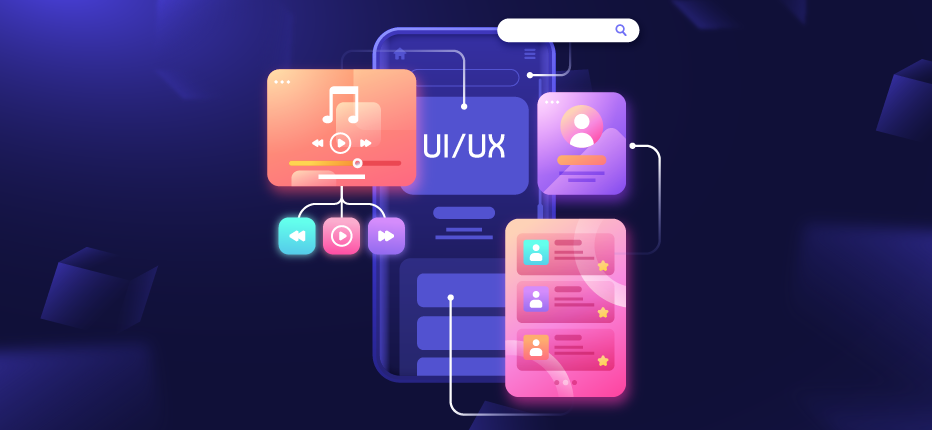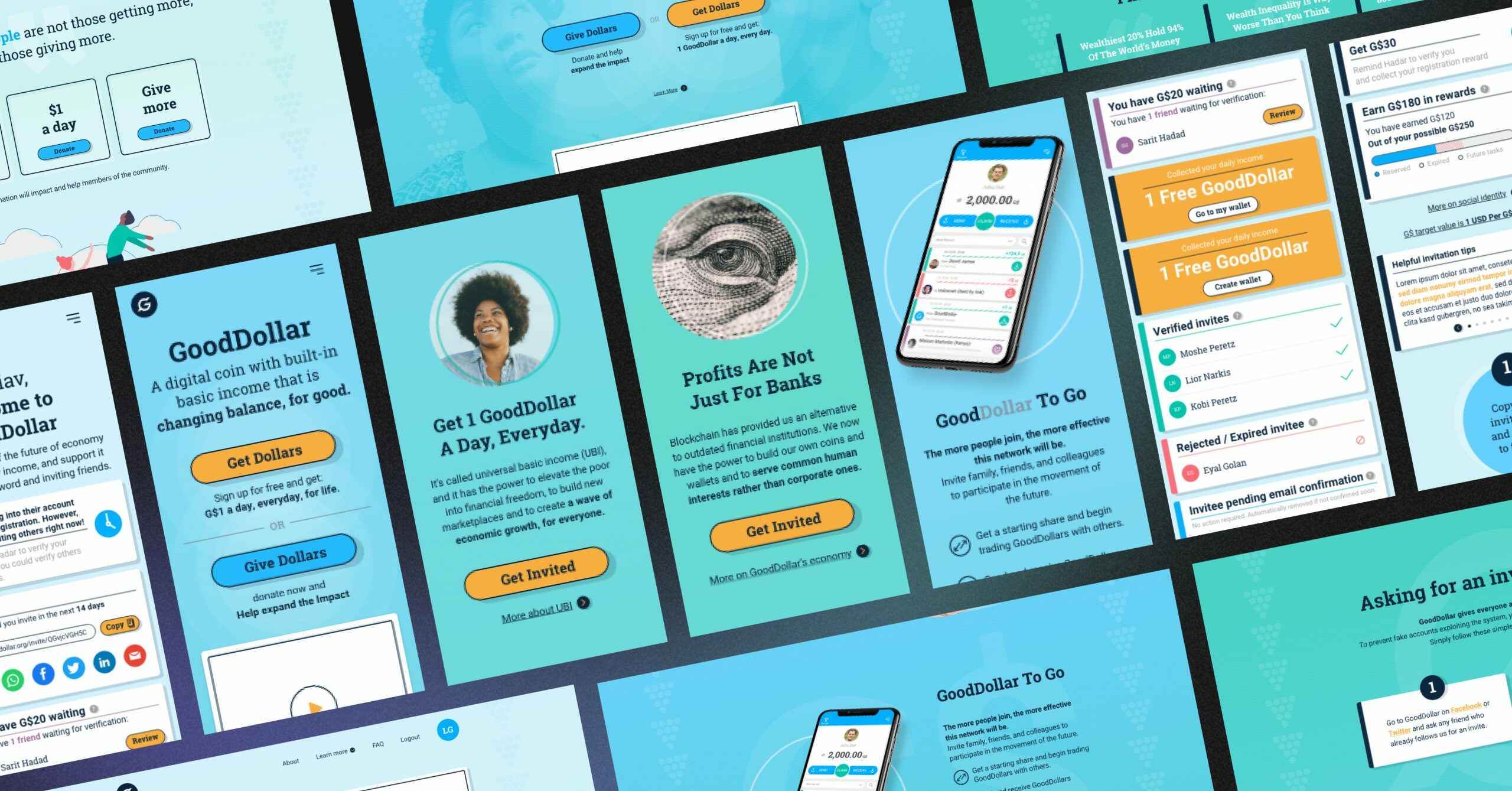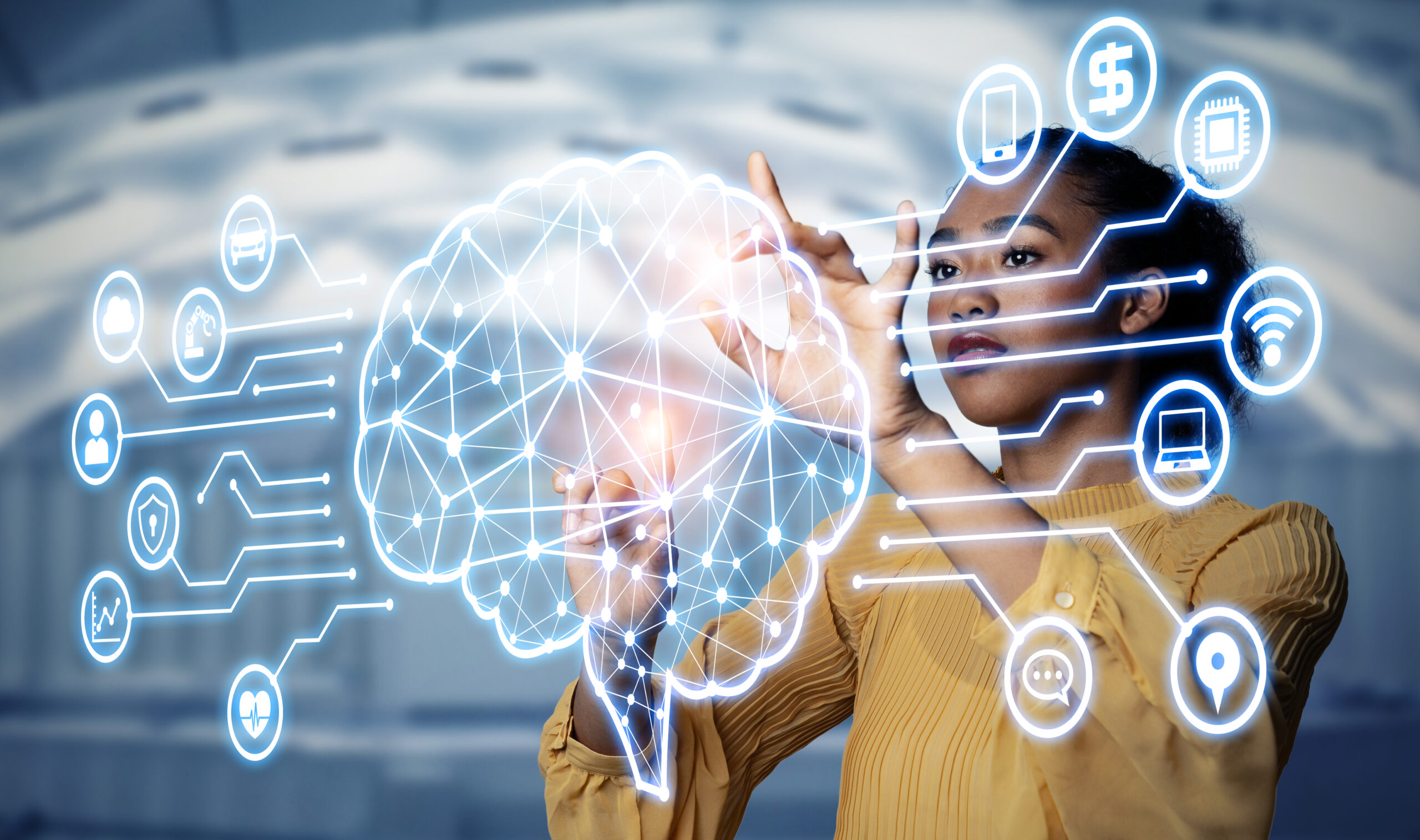Education is full of challenges; teachers need to keep students engaged and help them develop new skills, but this has become increasingly difficult with the shift to online learning and skill gaps.
Luckily, advancements in AI are providing solutions. Modern learning management systems (LMS) can integrate AI to make education more engaging and effective for both students and teachers. It’s no surprise that 47% of learning management systems will be equipped with AI features in the last three years.
At WeSoftYou, we leverage our expertise in education and AI software development to deliver solutions that enhance the learning experience and address challenges. For example, we developed an AI learning platform to help students with dyslexia. In this article, we’ll explore some innovative examples of these solutions and cover everything you need to know about implementing them. Keep reading for valuable insights.
How AI Enhances Learning Platforms
Learning platforms personalized by AI go beyond traditional teaching methods by analyzing vast amounts of data. With real-time monitoring, they assess students’ progress and provide instant feedback. This allows educators to identify areas where students may be struggling and intervene proactively to provide additional support. Moreover, AI can help automate administrative tasks, freeing up teachers’ time to focus on providing personalized instruction.
Consider a scenario where a teacher has a class of thirty students. It can be challenging for them to keep track of each student’s progress and provide individualized feedback in a timely manner. However, with AI-based learning platforms, the teacher can access comprehensive data on each student’s performance, including their strengths, weaknesses, and areas of improvement. Armed with this information, the teacher can offer targeted guidance and support, ensuring that no student falls through the cracks. This personalized attention not only enhances the learning experience but also fosters a sense of belonging and support within the classroom.
Key Features of AI-Based Learning Platforms
AI-based learning platforms offer a range of features that enhance the learning experience for both students and educators:
- Personalized Learning Experiences: With AI algorithms, learning platforms can adapt to each student’s unique needs and learning style. By tailoring content and pacing, these platforms ensure that students receive individualized instruction, maximizing their potential for success. As a result, surveys show AI-driven personalized learning platforms enhance students’ engagement in courses up to 70%.
- Real-Time Progress Tracking: AI-based learning platforms track students’ performance in real-time, providing instant feedback and progress reports. This enables educators to intervene promptly if a student is struggling and assess the effectiveness of their teaching methods.
- Interactive Learning Environment: AI-based platforms provide interactive learning experiences through multimedia elements, simulations, and gamification. These engaging features make learning more enjoyable and help students retain information more effectively. For example, one study indicates that implementing gamification practices in the educational process can enhance students’ memory and recall up to 40%.
- Adaptive Assessments. One of the remarkable features of AI-based learning platforms is their ability to offer adaptive assessments. These assessments adjust the difficulty level of questions based on the student’s responses, ensuring that each student is appropriately challenged. This adaptive approach not only keeps students engaged but also provides more accurate insights into their knowledge and skills.
- Collaborative Learning Opportunities. AI-driven learning platforms also facilitate collaborative learning opportunities by enabling students to interact with peers in virtual environments. Through features like group projects, discussion forums, and peer review functionalities, students can engage in meaningful discussions, share ideas, and learn from each other’s perspectives. This collaborative aspect not only enhances the learning experience but also fosters important skills such as teamwork and communication.
If you decide to build such a learning platform, it’s necessary to discuss all features needed with your software development partner.
The Benefits of Using AI-Based Learning Platforms
The use of AI in e-learning offers numerous benefits, from enhancing student engagement to streamlining administrative tasks.
Enhancing Student Engagement
Traditional teaching methods often struggle to capture and maintain students’ attention. AI-based platforms provide interactive and engaging learning experiences, keeping students motivated and excited about their education.
These platforms utilize advanced algorithms to analyze students’ learning patterns and preferences, tailoring the content to suit their individual needs. By offering personalized learning experiences, AI-based platforms can significantly increase student engagement and participation in the educational process.
Streamlining Administrative Tasks
Teachers spend a significant amount of time on administrative tasks, such as grading assignments or managing schedules. AI-based learning platforms can automate these tasks, allowing educators to focus on providing quality instruction and support to their students.
Moreover, AI can generate detailed reports on student progress and performance, providing valuable insights for educators to adjust their teaching strategies accordingly. By automating administrative duties and providing data-driven insights, AI-based platforms empower teachers to make more informed decisions and enhance the overall learning experience for students.
Improving Learning Outcomes
One of the most significant advantages of AI-based learning platforms is their ability to personalize instruction. By adapting to students’ individual needs, these platforms can improve learning outcomes, ensuring that students are reaching their full potential.
Furthermore, AI can identify areas where students may be struggling and provide targeted interventions to help them overcome challenges. This personalized approach to learning not only improves academic performance but also boosts students’ confidence and motivation to succeed in their educational journey.
Potential Challenges with AI-Powered LMS
While AI-based learning platforms offer many benefits, there are also potential challenges that need to be addressed:
Data Privacy Concerns
As AI-based platforms gather and analyze large amounts of student data, ensuring data privacy becomes vital. It is essential to implement robust security measures to protect students’ sensitive information from unauthorized access.
In addition to data privacy concerns, another challenge that arises with AI-based learning platforms is the ethical use of student data. Educators and developers must navigate the fine line between utilizing data to enhance learning experiences and safeguarding students’ privacy rights.
Technical Issues and Accessibility
Implementing AI-based learning platforms requires sufficient technological infrastructure. Ensuring that all students have equal access to these platforms is crucial to avoid exacerbating educational inequalities. For example, this can be achieved through well-built design tailored to learning needs for different students.
Moreover, addressing technical issues such as system compatibility, network connectivity, and software updates is essential for the seamless integration of AI technologies in educational settings. Schools and institutions need to invest in resources and training to support both students and educators in effectively utilizing these platforms.
The Costs Associated with AI-Based Learning Platforms
When considering the implementation of AI-based learning platforms, it is important to account for the associated costs.
Initial Setup and Implementation Costs
Implementing an AI education software involves various factors that influence the initial cost. Here’s a breakdown with estimated ranges:
- Software Licensing: $10,000 – $100,000+ per year (depending on features, student enrollment, and vendor)
- Hardware Infrastructure: $5,000 – $50,000+ (one-time cost for servers, storage, etc.)
- Integration Services: $5,000 – $25,000+ (depending on complexity of existing systems)
- Data Migration (Optional): $2,000 – $10,000+ (cost to transfer existing learner data)
- Staff Training: $1,000 – $5,000 per staff member (varies based on training duration and depth)
Thus the initial setups and implementation cost for AI LMS may vary from $23,000 to $190,000+.
Ongoing Maintenance and Update Costs
AI-based learning platforms require regular maintenance and updates to ensure smooth operation and address any technical issues that may arise. These ongoing costs should be factored into the budget, including:
- Technical Support: $2,000 – $10,000+ per year (vendor-provided support for maintenance)
- System Updates: $1,000 – $5,000+ per year (costs for platform updates and bug fixes)
- AI Model Maintenance: $5,000 – $25,000+ per year (depending on complexity of the AI model and data needs).
In general, you can expect that ongoing maintenance and updates for your AI-based learning management system will cost you $8,000 – $40,000+ per year.
Cost-Benefit Analysis of an AI Learning Management System
While AI-based learning platforms may require an initial investment, conducting a cost-benefit analysis can help determine their value. Here are some metrics to analyze.
Return on Investment (ROI)
While initial costs are significant, the long-term benefits can lead to a positive ROI. Consider quantifying:
- Potential improvements in student engagement (e.g., increased time spent learning, participation in discussions)
- Completion rates (percentage of students finishing courses)
- Reduced need for human intervention (e.g., grading time saved, less time spent on administrative tasks)
Scalability
Choosing a scalable platform minimizes future costs associated with:
- Growing user base (more students and educators)
- Expanding functionalities (adding new features or integrating with additional tools)
5 Examples of Successful AI-Powered Personalized Learning Platforms
Now, let’s explore some of the best AI learning platforms to see how technology serves educational purposes, personalizing learning paths, providing 24/7 support, and creating immersive training simulations.
360Learning
360Learning tailors learning experiences to individual needs. AI analyzes learner data to identify strengths and weaknesses, recommending relevant content and adjusting difficulty levels for optimal understanding. This personalization keeps learners engaged and motivated, leading to improved knowledge retention.
Docebo
This AI-driven learning automation platform streamlines content management by suggesting relevant materials based on learner profiles and course objectives. This reduces the time and effort required for educators to curate learning materials. Additionally, AI-powered scheduling suggests optimal times for learners to complete courses based on historical data, maximizing learning efficiency.
SC Training
This microlearning platform utilizes AI-powered microlearning recommendations and spaced repetition for knowledge retention. It focuses on delivering bite-sized learning modules that are easily digestible and can be completed on-the-go. AI personalizes learning paths by recommending microlearning modules based on individual needs and progress. Spaced repetition, a technique where information is reviewed at optimal intervals, is powered by AI to ensure long-term knowledge retention.
Adept Learning
Adept Learning’s AI chatbots act as virtual learning assistants, providing personalized support and guidance to learners. They can answer questions, offer feedback on assignments, and direct learners to relevant resources. This 24/7 support system enhances the learning experience by addressing individual needs and fostering a more interactive learning environment.
MindTickle
MindTickle provides a realistic and engaging learning environment for sales professionals. AI-powered simulations allow them to practice sales conversations and receive personalized coaching based on their performance. This targeted approach helps sales teams refine their skills and improve their effectiveness.
How We Developed AI-Powered Learning Platform Helping Children Worldwide Overcome Dyslexia
Our WeSoftYou team is experienced in crafting AI-based solutions that tackle real-world educational challenges. One such project is Luca.ai, an innovative platform designed to empower children overcoming dyslexia. Partnering with a Pennsylvania-based company, we successfully delivered Luca.ai within a remarkable timeframe of just 2.5 months.
Luca.ai stands out as a powerful tool for personalized reading advancements, packed with core features designed to enhance the learning experience for both children and parents. Among them are:
- Onboarding Process: Setting up child profiles and gaining consent is streamlined for parents. Children also receive a user-friendly introduction to the platform.
- User Management System: Super admins and parents have control over user accounts, allowing them to view, add, edit, and manage child profiles.
- User Profiles: Parents can access profiles to view child progress and manage consent forms, while children can view their own profiles.
- Curriculum Management: Parents can take an active role in their child’s learning by viewing curriculum, creating new assignments, and editing existing ones. Children can access and view their assigned tasks.
- Settings Customization: Both parents and children can personalize their platform experience through dedicated settings options.
- Detailed Reporting: Parents gain valuable insights into their child’s progress through comprehensive reports on completed assignments within the Learning Management System (LMS) and mobile app.
- Lesson Flow Adjustments: Lesson screens have been optimized for a more intuitive and engaging learning experience for children.
When working on this project, our team made everything possible to deliver a user-friendly experience for both children and parents which is crucial for such projects.
Key Takeaways
AI-based learning platforms are revolutionizing the way students engage with educational content. By utilizing sophisticated algorithms, these platforms can analyze individual learning styles and preferences to tailor lessons specifically to each student’s needs. This level of personalization not only enhances the learning experience but also increases retention and comprehension of the material.
In addition to personalized learning, AI-based platforms also have the capability to provide real-time feedback to students, allowing for immediate correction and reinforcement of concepts. This instant feedback loop helps students stay on track and address any misunderstandings promptly, leading to a more efficient learning process.
Embark on your journey to transforming the educational experience with WeSoftYou. Our expertise in crafting tailored software solutions, including Minimum Viable Products (MVPs), web, and mobile development, aligns perfectly with the needs of modern AI-based learning platforms. By adhering to 36 Standards of Quality and selecting only the top 3% of talent, we ensure that your project will not just meet, but exceed expectations. We are committed to providing a 100% match in project estimates, making us the ideal partner for both startups and established businesses.
Contact us to get a quote and take the first step towards your custom AI education platform.
FAQs
Consider the following when choosing a platform:
– Features: Ensure the platform offers the specific features you need, such as personalized learning or automated grading.
– User Experience: Look for a platform with an intuitive and user-friendly interface.
– Scalability: Choose a platform that can grow with your needs and support a large number of users.
– Support and Integration: Check for good customer support and compatibility with other tools and systems you use.
– Cost: Evaluate the cost relative to your budget and the value provided.
To get started:
– Define Objectives: Clearly outline what you want to achieve with your platform.
– Assemble a Team: Hire experts in AI, software development, and educational technology.
– Develop a Prototype: Create a basic version of your platform to test and refine your ideas.
– Test and Iterate: Gather feedback from users and make improvements based on their experiences.
– Launch and Support: Deploy the platform and provide ongoing support and updates.
Collaborating with experts ensures that your platform benefits from advanced knowledge and experience in AI and educational technology. Experts can navigate technical challenges, ensure the platform meets educational standards, and help you leverage best practices for AI integration. Their expertise can significantly enhance the quality and effectiveness of your platform, leading to better outcomes for both educators and students.






















